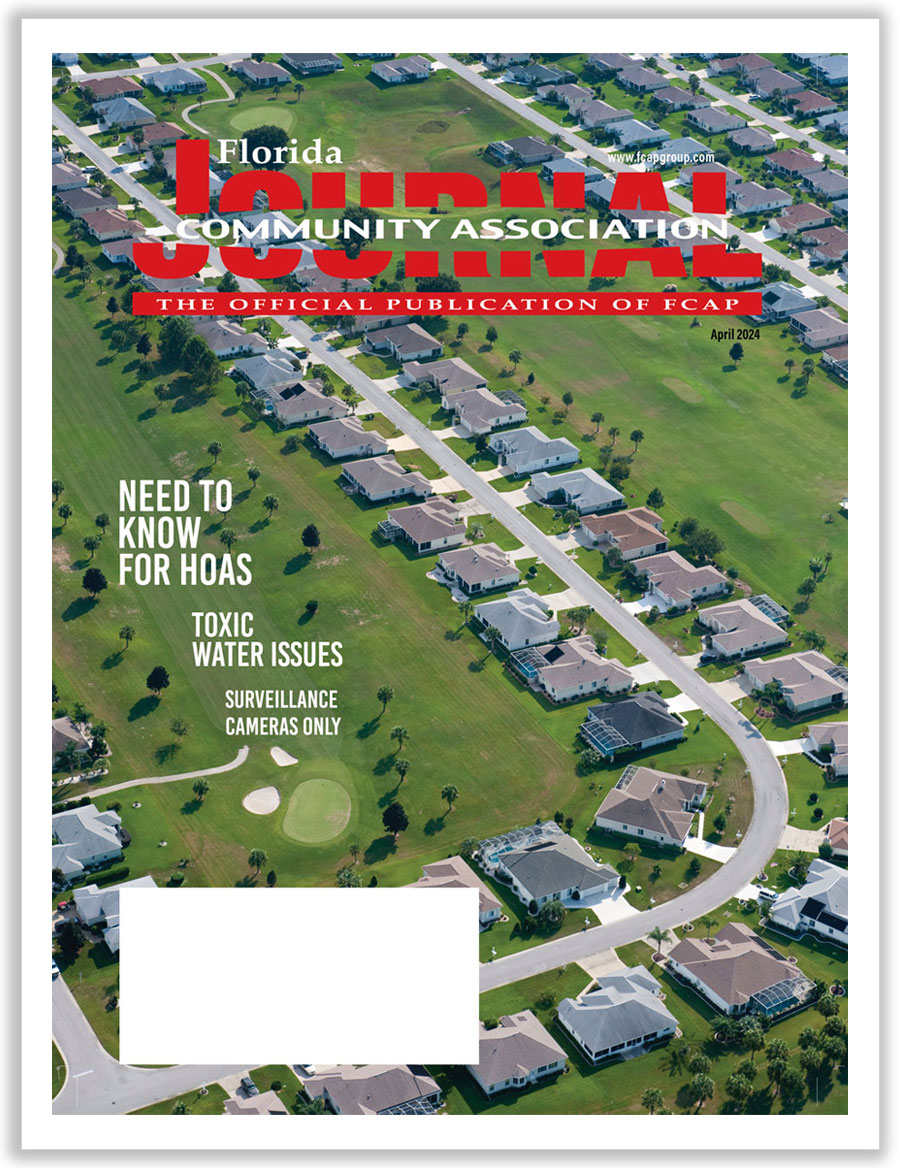
Audacious Management
By Betsy Barbieux, CAM, CFCAM, CMCA / Published July 2022

It was a great job. You had been the general manager for almost a dozen years at an association in one of the most beautiful parts of Florida. All your key employees had been with you at least ten years and worked together like a well-oiled machine. You were attentive to your board of directors, and they trusted you. You respected them, and they let you do your work and make most of the operational decisions.
You weren’t particularly interested in changing jobs. But the thought of a challenge (and as it turned out, challenges) motivated you. The challenges? Manage a bigger association, and take advantage of a chance to use your real estate license. Step into the shoes of the previous general manager who had been there 27 years and was very, very well thought of by the owners, board of directors, and employees. Board members who wanted to be involved in the decision making. Employees who had worked together for years and who knew their jobs. You did not.
Then there were the obstacles to overcome. The main obstacle was you. Your former employees and board members knew what to expect from you and you of them. You were used to making many of the operational decisions. You were in charge. Now, you’ll be the new kid on the block, and no one cares how you used to do it. You’ll have to stop, ask questions, and wait for answers.
With big shoes to fill, you stepped into the challenges. Somehow, you found a way to step over and around the obstacles and get yourself out of the way. Some of your help came from the classic pages of How to Win Friends and Influence People by Dale Carnegie. Following are some lessons learned:
Principle 4—Become genuinely interested in other people.
Make it a point to get to know the employees and the board and to find out what they expect. Ask questions. Observe and learn how things had been done in the past.
Principle 8—Talk in terms of the other person’s interests.
In this case, by appealing to the owners’ interests of wanting their investments to appreciate, they decided to put more effort into and spend money on maintaining the building. This happened when they were encouraged to look at the bigger picture, not just the details.
Principle 9—Make the other person feel important and do it sincerely.
In this case, the maintenance department manager had been there since the buildings were built. He knew every inch of the property inside and out and knew the detailed interiors to every unit. He was the unofficial leader of the staff, which was not a bad thing. He had great influence with the other department managers—front desk, security, rental, accounting, and housekeeping. The owners loved him. Gaining his trust and loyalty were important. Developing a good working relationship meant asking for help instead of demanding it. A pivotal conversation with the maintenance department manager occurred when you acknowledged his influence and leadership with the employees and how they looked to him as their leader. His influence and leadership with the employees were a positive and not something to threaten you.
Principle 10—The only way to get the best of an argument is to avoid it.
Learn who the main players are among the board and employees. Observe which ones are passive decision makers and which ones like to argue. Choose your “battles.” In this case, since everyone seemed satisfied with the overall operations, it would be counterproductive to take the aggressive position of making drastic changes all at once. That would surely prompt an argument.
Principle 13—Begin in a friendly way.
After (and only after) you take plenty of time to look at the overall operations and maintenance is when you begin to suggest changes.
Principle 17—Try honestly to see things from the other person’s point of view.
Look through previous minutes to learn from the past. What issues had arisen? What motions had been proposed? Which ones passed and which failed? With what parts of their documents did they have the most problems? Which parts had been amended the most? What rules and regulations were in place? Why? What were the events that led to the promulgation of those rules? Listen to the employees and owners tell of days past.
Principal 19—Appeal to the nobler motives.
In community association management, the more noble cause would be the wise use of operating funds rather than continuing in the mind set of “this is the way we have always done it” or “our maintenance staff can do that and save us money.” By appealing to the more noble cause, show them, for instance, how they might save thousands of dollars by subcontracting out upgrades rather than using hourly personnel who are being paid overtime. Now you don’t pay overtime and your hourly personnel can get their routine tasks completed in a regular work week and catch up on their backlog.
Principle 30—Make the other person happy about doing the thing you suggest.
Effective management and leadership require that you strive for some degree of loyalty and trust from your employees, board members, and residents. It takes time to develop those relationships. It means listening more than you talk. You can’t just come in and start ordering people around. They may respond, but it won’t be with enthusiasm.
If you had changed jobs simply for the prestige or the bigger salary, you would have stepped into all the obstacles and probably not survived even one. But because you took the job for the challenges, you were able to be more objective, which caused you to slow down the change process and thoroughly enjoy it.
Betsy Barbieux, CAM, CFCAM, CMCA
Florida CAM Schools
Betsy Barbieux, CAM, CFCAM, CMCA, guides managers, board members, and service providers in handling daily operations of their communities while dealing with different communication styles, difficult personalities, and conflict. Effective communication and efficient management are her goals. Since 1999, Betsy has educated thousands of managers, directors, and service providers. She is your trainer for life! Betsy is the author of Boardmanship, a columnist in the Florida Community Association Journal, and a former member of the Regulatory Council for Community Association Managers. Subscribe to CAM MattersTM at www.youtube.com/c/cammatters. For more information, contact Betsy@FloridaCAMSchools.com, call (352) 326-8365, or visit www.FloridaCAMSchools.com.




